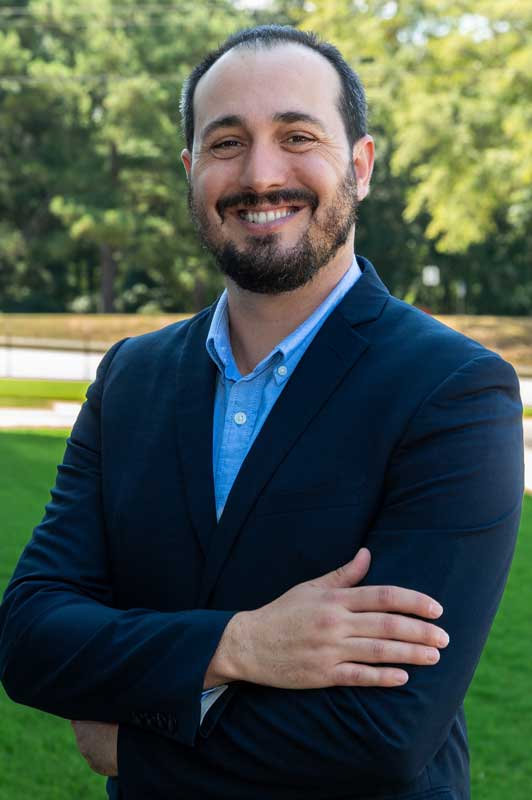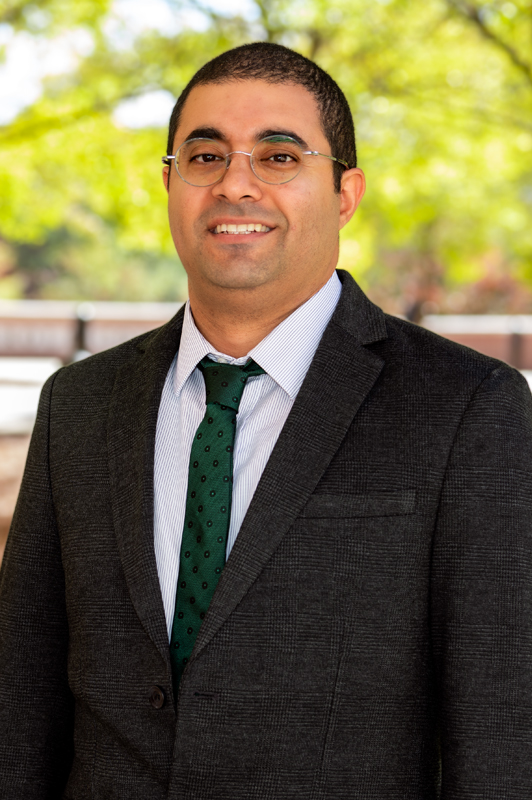U.S. Nuclear Regulatory Commission to support Auburn Engineering in advanced nuclear reactor research
Published: Oct 12, 2021 12:00 PM
By Jeremy Henderson
The U.S. Nuclear Regulatory Commission recently announced two awards totaling $1 million to Auburn University to advance the future manufacturing and construction of advanced nuclear reactors.
The first award of $499,999, led by Kadir Sener and Jack Montgomery, both assistant professors of civil engineering, is to develop a soil-structure-interaction framework to enhance the regulatory oversight of new generation nuclear power plant designs known as Small Modular Reactors (SMRs).
“Most SMR designs that are currently under development place the critical compartments like the reactor containment or the entire structure below ground level,” Sener said. “This structural layout is advantageous in protecting compartments with critical equipment from external hazards and also mitigating the environmental exposure of contaminants in an accident event. However, partially or fully burying these structures causes potential uncertainties related to the performance against earthquakes, where soil-structure-interaction and interface behavior are expected to have a significant impact on the structural response.”
The research team will conduct experimental and numerical studies to develop a modeling framework for improved safety of SMRs.
“Nearly all studies on interface behavior between soil and structures have focused on small-scale tests or surface footings, which makes it difficult to know if the results are valid for large, buried structures,” Montgomery said. “The geotechnical chamber built into Auburn’s recently opened Advanced Structural Engineering Laboratory will give us the unique testing capability to test large-scale specimens that realistically simulate the interface behavior.”
Montgomery said the experimental data generated during the project will be seminal in guiding vendors and researchers to conduct further investigations on specific structure designs and soil conditions.
The second award of $500,000, led by Xiaoyuan Lou, associate professor of materials engineering, is for establishing the regulatory basis for qualifying laser additively manufactured stainless steels for nuclear applications. In particular, the research focuses on understanding the effects of microstructural variations from the laser additive manufacturing (AM) process on the irradiation-assisted stress corrosion cracking susceptibility of reactor structural components.
“The research community reported very different observations for irradiation damages of AM steels,” Lou said. “From the regulator’s point of view, these opposite perspectives raised concerns that microstructural variations might play a bigger role in determining nuclear material properties.”
Data and mechanistic insights are critical to address these concerns.
“We have a unique experimental set-up to simulate the modern light water reactor environments,” Lou said. “This capability allows us to study the crack initiation under complex loadings in high-temperature, high-pressure water environments.”
Texas A&M University is collaborating on this project, where proton irradiation will be performed.
Media Contact: , jdh0123@auburn.edu, 334-844-3591
Xiaoyuan Lou, Jack Montgomery and Kadir Sener



